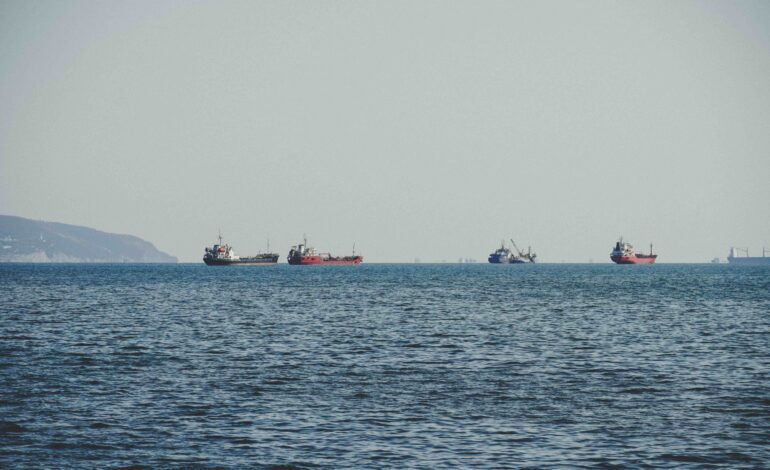
Renewable and sustainable marine fuels
Introduction
As the global community grapples with the urgent need for sustainable solutions, the maritime industry is setting sail towards a cleaner and greener future with renewable and sustainable marine fuels. This article explores the evolution, potential, and challenges of adopting renewable fuels in the maritime sector, emphasizing their pivotal role in mitigating environmental impact and steering the industry towards a sustainable horizon.
The Imperative for Change
The maritime industry, traditionally reliant on fossil fuels, faces increasing pressure to reduce its environmental footprint. With concerns about climate change, air quality, and the impact of shipping emissions on coastal ecosystems, there is a growing imperative to transition towards renewable and sustainable alternatives.
- Climate Change Mitigation: The shipping industry is a significant contributor to greenhouse gas emissions, with conventional marine fuels releasing carbon dioxide (CO2), sulfur oxides (SOx), nitrogen oxides (NOx), and particulate matter into the atmosphere. The adoption of renewable and sustainable marine fuels aligns with global efforts to mitigate climate change by reducing the sector’s carbon footprint.
- Air Quality Improvement: The combustion of traditional marine fuels contributes to poor air quality in ports and coastal areas, affecting both human health and the environment. Renewable marine fuels offer a cleaner combustion profile, reducing harmful emissions and contributing to improved air quality in maritime regions.
- Regulatory Compliance: Stringent environmental regulations, such as the International Maritime Organization’s (IMO) targets for reducing greenhouse gas emissions, are driving the adoption of sustainable marine fuels. Shipowners and operators must comply with evolving regulations, making renewable fuels a strategic choice for meeting environmental standards.
Types of Renewable and Sustainable Marine Fuels
- Biofuels: Biofuels derived from organic materials, such as algae, plant-based oils, or waste materials, offer a renewable alternative to conventional marine fuels. Biodiesel and bio-methanol are examples of biofuels that can be blended with or replace traditional fuels, providing a cleaner combustion profile.
- Hydrogen: Hydrogen, either in its pure form or as part of ammonia production, is emerging as a promising renewable marine fuel. Green hydrogen, produced using renewable energy sources like wind or solar, has the potential to power ships without emitting greenhouse gases during combustion.
- Electrification and Batteries: Electrification of maritime propulsion systems, coupled with advanced battery technologies, is gaining traction. Electric and hybrid-electric propulsion systems, powered by shore-based electricity or onboard batteries, reduce emissions and offer a pathway to sustainable shipping.
- Synthetic Fuels (E-fuels): Synthetic fuels, also known as electrofuels or E-fuels, are produced through the electrolysis of water to create hydrogen, which is then combined with carbon dioxide captured from the atmosphere. This process, powered by renewable energy, results in synthetic fuels with net-zero carbon emissions.
Advantages of Renewable Marine Fuels
- Reduced Greenhouse Gas Emissions: The primary advantage of renewable marine fuels is their potential to significantly reduce greenhouse gas emissions compared to traditional fossil fuels. By utilizing organic or renewable sources, these fuels offer a more sustainable path towards decarbonization.
- Improved Air Quality: Renewable marine fuels produce lower levels of sulfur and nitrogen oxides, contributing to improved air quality in port cities and coastal areas. The reduction of harmful pollutants aligns with the industry’s commitment to minimizing its environmental impact.
- Regulatory Compliance and Market Access: As environmental regulations tighten, the adoption of renewable marine fuels ensures regulatory compliance, reducing the risk of penalties and market restrictions. Access to environmentally conscious markets and customers who prioritize sustainable shipping practices becomes a strategic advantage.
Challenges and Considerations
- Infrastructure Development: The widespread adoption of renewable marine fuels requires a significant investment in infrastructure, including production facilities, distribution networks, and refueling stations. The development of a robust infrastructure is essential to support the scalability of renewable fuel use in the maritime sector.
- Energy Density and Storage: Some renewable fuels, such as hydrogen, face challenges related to energy density and storage. Overcoming these hurdles requires advancements in technology to develop efficient storage solutions and address the limitations associated with the energy density of certain renewable fuels.
- Cost Competitiveness: The cost of renewable marine fuels is currently higher than that of conventional fuels. Achieving cost competitiveness is a critical factor in encouraging widespread adoption. Continued advancements in production processes and economies of scale are essential to narrowing the cost gap.
- Technology Integration: The integration of renewable propulsion technologies and fuel systems into existing vessels poses technical challenges. Retrofitting or designing new vessels to accommodate renewable fuels requires careful planning and innovation to ensure optimal performance and compliance with safety standards.
Case Studies and Industry Initiatives
- Methanol-Powered Containerships: Several container shipping companies have embarked on initiatives to utilize methanol as a renewable marine fuel. Methanol is produced from biomass or captured carbon dioxide, offering a pathway to reducing the carbon footprint of container shipping.
- Green Hydrogen Pilot Projects: Pilot projects involving the use of green hydrogen as a marine fuel are underway. These projects explore the feasibility of utilizing hydrogen fuel cells for propulsion and the production of hydrogen from renewable sources.
- Electrification in Ferries: Electric and hybrid-electric propulsion systems are gaining popularity in the ferry sector. Operators are investing in battery-electric and hybrid ferries, demonstrating the viability of electrification in short-distance maritime transportation.
Future Prospects and Industry Collaboration
- Innovation and Research: Ongoing research and development efforts are crucial for advancing renewable marine fuel technologies. Innovations in production processes, storage solutions, and propulsion systems will drive the industry towards more sustainable options.
- Global Collaboration: International collaboration is essential for creating a standardized framework for the production, distribution, and use of renewable marine fuels. Collaborative efforts involving governments, industry stakeholders, and research institutions can accelerate the transition to sustainable shipping.
- Policy Support: Government policies and incentives play a pivotal role in encouraging the adoption of renewable marine fuels. Supportive regulatory frameworks, subsidies, and incentives can incentivize investment in sustainable technologies and contribute to the growth of the renewable fuel market.
Conclusion
Renewable and sustainable marine fuels represent a beacon of hope for the maritime industry as it navigates the complex waters of environmental responsibility. The imperative to reduce greenhouse gas emissions, improve air quality, and comply with evolving regulations has spurred a wave of innovation in renewable fuel technologies.
While challenges such as infrastructure development, energy density, and cost competitiveness remain, the industry’s commitment to sustainability is steering it towards a future where ships traverse the seas powered by cleaner, greener alternatives. The journey towards widespread adoption of renewable marine fuels is not only a technological evolution but a collective commitment to safeguarding our oceans and creating a sustainable legacy for future generations.





